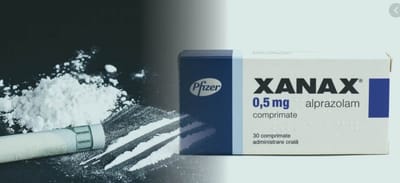Addiction Recovery Options

That is articles, not a guide, so I won't be starting depth on the various points covered, but I have included links to articles, and those sites offering more in-depth coverage. Hopefully you fill find everything you are looking for; everything you might need.
So how to start?
Because addiction has both physiological and psychological components that have to be addressed, it is very important to realize that the psychological components aren't easy to get at until the physiological components are now being addressed. What this means is a period of detoxification (Detox) must be endured. This is simply not an option. Regardless of the approach, recovery begins with some degree of lowering of use; any reduction can have its impact on both your brain and body.
An addicted individual's mind and body have grown to be accustom to the presents of a substance, and have made both physical and mental adjustments to deal with its constant influences. When the substance is no more available, the human body begins to readjust compared to that absence. This readjustment is called Post Acute Withdrawal. Post Acute Withdrawal symptoms can be very uncomfortable, but they are manageable.
Regardless of the option or options chosen, this is where recovery begins.
Treatment Options:
Residential Treatment Centers (RTC):
Residential Treatment Centers go by many names, and offer a number of treatment approaches. They're sometimes called clinics, rehabs, recovery homes or houses, retreats, halfway houses, or sober homes. The most typical approach used by RTCs is the one that addresses the medical needs of the person while offering a 12 Step program that includes workshops, group meetings and individual counseling. The inclusion of the 12 Step component is sometimes, but seldom, omitted as there is controversy regarding the definition and interpretation of the 12 Steps utilization of what God and Spirituality '.
Out-Patient Facilities:
Out-patient facilities serve folks who can't afford the full time or expense of a residential treatment facility. They often provide a wider array of choices for both addicts and their families. These choices can include counseling, group meetings, family support, crisis support, relapse prevention workshops, along with support and training for school staff, employers, expectant mothers, and parents with addiction issues.
Individual Counseling:
Most counselors combines cognitive-behavioral, motivational, insight, and goal oriented therapies.
The procedure can look something such as this: You and the counselor will examine your challenges, you'll determine what you need from the therapy, goals will undoubtedly be described and set, and a class of action will undoubtedly be implemented. This is sustained with on-going sessions until you and the counselor determined otherwise. Counselors are also able to recognize physical and psychological conditions that are beyond their training, and direct one to the help you may need.
An experienced and well-trained counselor www.gardenstatetreatmentcenter.com/does-xanax-help-with-insomnia/ will approach each client as a unique individual with challenges that need a custom fit. If your counselor states or implies that there surely is a one-size-fits-all solution to addiction recovery, then they are neither skilled nor well-trained. Their therapeutic style must be empathic, client centered, and flexible no matter whether they accept the condition model or the life-process model of addiction.
Beliefs and Understandings:
Disease Model:
The disease model of addiction is built upon evidence based theories. In the middle with this concept could be the evidence that most drugs (cocaine, marijuana, alcohol, methamphetamine, tobacco, and...) activate pathways in the brain that control the amount to which we would like something. Dopamine could be the neurotransmitter that's released when pleasure is experienced, and all drugs activate its release. Paula Riggs, M.D.
an Associate Professor in Psychiatry at the University of Colorado stated during an HBO program on drug addiction that drugs are 5 times more compelling than those items that we're normally compelled to want like food and sex. She states which they commandeer our brain reward system and drive our behavior.
Those two points, the brain reward system and the resulting behaviors, are in the center of the condition model and the following medical approach to recovery. Treatment includes medication to deal with the biological components while counseling relates to the behavioral components.
This brain-centered understanding views the biological and behavioral as inseparable. It generally does not challenge an individual's free-will and responsibilities, but does explain an addicted person's will is contending with very powerful influences, and that without help they will likely succumb to those influences as opposed to make the rational selection of discontinued use.
Life-Process Model:
Proponents of the life-process model of addiction reject the condition model claiming that addiction is a practice that develops consequently of a locus of satisfaction and coping which could only be addressed through social relationships and life experiences. Supporters of the life-process reject the validity of recent scientific evidence, or the interpretation of this evidence, and the utilization of the word disease. They do not deny that physical mechanisms at play account for aberrant behaviors, but feel that the person can regain control through strength of will and by repairing personal and social relationships.
Fellowships:
In the world of substance addiction recovery Fellowship 'identifies Alcoholics Anonymous, Narcotics Anonymous, and the other groups of an individual gathering together to share with their story of addiction and to help and support one another through challenges and difficulties. There are organizations coping with addiction to gambling, sex, cocaine, pornography, over-eating, and more. What all of these fellowships have in common is the utilization of AA's 12 Step approach to recovery.



